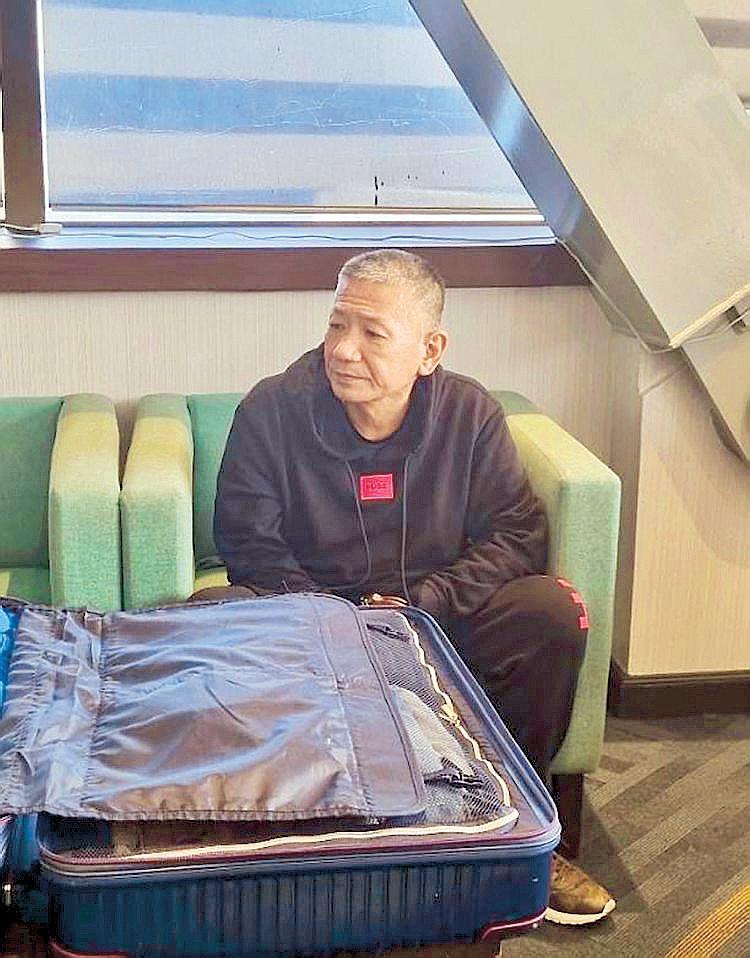Deported as gang member has become a controversial issue that continues to spark debates across the globe. Stories of individuals being deported under such allegations often raise questions about the accuracy of evidence and the impact on families. This is not just a legal matter but also an emotional and human rights issue that affects countless lives. Families caught in this situation often find themselves in a battle to clear their loved ones' names and seek justice.
In recent years, the deportation of individuals labeled as gang members has surged, prompting discussions about the fairness of these processes. Many families dispute the allegations, claiming that their loved ones have been wrongly identified and accused. These cases often involve complex legal and social dynamics, making it crucial to understand the underlying issues and the implications for those affected.
This article explores the topic of deportation due to gang member allegations in-depth. We will examine the reasons behind such deportations, the challenges faced by families, and the legal processes involved. Additionally, we will provide insights into real-life cases and expert opinions to give readers a comprehensive understanding of the issue.
Read also:Instacmas
Table of Contents
- Reasons Behind Deportation as Gang Member
- The Legal Process of Deportation
- Family Responses to Allegations
- The Role of Evidence in Deportation Cases
- Human Rights Implications
- Real-Life Cases of Deported Individuals
- Support Systems for Families
- Expert Views on Deportation Allegations
- Prevention and Advocacy Efforts
- Conclusion
Reasons Behind Deportation as Gang Member
Deportation as gang member allegations often stem from various factors, including law enforcement tactics, immigration policies, and intelligence reports. Law enforcement agencies may rely on specific indicators, such as tattoos, social media activity, or association with known gang members, to classify individuals as part of a gang. However, these indicators can sometimes lead to misidentification and wrongful accusations.
Immigration policies have also tightened in recent years, with an increased focus on deporting individuals suspected of gang involvement. This shift has resulted in higher numbers of deportations, even in cases where the evidence is not conclusive. The consequences for those deported and their families can be devastating, as they often face separation and a lack of support in their home countries.
Factors Leading to Deportation
- Tattoos or physical markings associated with gangs
- Social media posts or interactions linked to gang activity
- Association with known gang members or suspected gang affiliates
- Intelligence reports from law enforcement agencies
The Legal Process of Deportation
The legal process of deportation involves multiple stages, starting from the identification of an individual as a suspected gang member to the final decision to deport. Once identified, the individual may face detention and a series of legal proceedings to determine their status. During this time, they have the right to legal representation and the opportunity to present evidence to counter the allegations.
However, the process can be lengthy and complex, often leaving families in limbo as they wait for a resolution. Legal challenges and appeals may be filed, but success is not guaranteed. Understanding the legal framework surrounding deportation is essential for families and individuals seeking justice and fairness.
Key Stages in the Deportation Process
- Identification and detention by immigration authorities
- Legal proceedings and hearings
- Appeals and legal challenges
- Final deportation order and execution
Family Responses to Allegations
Families of individuals deported as gang members often dispute the allegations, arguing that their loved ones have been wrongly accused. They may seek legal assistance, gather evidence to support their claims, and advocate for their family member's return. Emotional and financial challenges often accompany these efforts, as families navigate the complex legal system while coping with the emotional toll of separation.
Community support and advocacy groups can play a crucial role in assisting families during this difficult time. These organizations provide resources, legal guidance, and a platform for families to share their stories and seek justice.
Read also:King's Wok Buffet Reviews
Strategies Used by Families
- Hiring legal representation to challenge deportation orders
- Gathering evidence to disprove gang involvement allegations
- Engaging with advocacy groups and community organizations
- Raising public awareness through media and social platforms
The Role of Evidence in Deportation Cases
Evidence plays a critical role in deportation cases, particularly those involving gang member allegations. Law enforcement agencies rely on various forms of evidence, including intelligence reports, witness statements, and digital records, to support their claims. However, the reliability and accuracy of this evidence are often questioned, especially in cases where individuals are wrongly identified.
Families and legal representatives may challenge the evidence presented, arguing that it is insufficient or misleading. In some cases, new evidence may emerge that clears the individual's name, leading to a reversal of the deportation decision. The importance of thorough investigation and fair evaluation of evidence cannot be overstated in these cases.
Types of Evidence Used in Deportation Cases
- Intelligence reports from law enforcement agencies
- Witness statements and testimonies
- Digital records, including social media posts and images
- Physical evidence, such as tattoos or clothing
Human Rights Implications
Deportation as gang member allegations raise significant human rights concerns. The right to a fair trial, due process, and protection from arbitrary detention are fundamental principles that should guide these cases. When individuals are deported based on questionable evidence, their human rights may be violated, leading to further injustices.
International human rights organizations often monitor deportation cases to ensure compliance with global standards. Advocacy efforts aim to protect the rights of those affected and promote fair and just legal processes. Understanding the human rights implications of deportation is essential for addressing the broader issues surrounding these cases.
Key Human Rights Principles
- Right to a fair trial and due process
- Protection from arbitrary detention and deportation
- Right to family unity and protection from separation
Real-Life Cases of Deported Individuals
Real-life cases of deported individuals highlight the complexities and challenges of gang member allegations. These stories often involve individuals who have lived in the host country for years, established families, and contributed positively to their communities. Their deportation not only affects them but also has a profound impact on their families and communities.
Case studies provide valuable insights into the experiences of those affected and the legal processes involved. By examining these cases, we can better understand the issues at stake and the need for reform in deportation policies.
Case Study: John Doe
John Doe, a long-term resident of the United States, was deported to his home country after being labeled as a gang member. Despite having no criminal record and being an active member of his community, John faced deportation based on alleged associations with gang activity. His family disputes the allegations, claiming that the evidence is flawed and that John has been wrongly accused.
Support Systems for Families
Families of deported individuals often require support systems to help them navigate the legal and emotional challenges they face. These support systems can include legal assistance, counseling services, and community resources. Advocacy groups and non-profit organizations play a vital role in providing these services and advocating for policy changes.
Access to support systems can make a significant difference in the lives of families affected by deportation. By connecting with these resources, families can gain the knowledge and tools needed to pursue justice and support their loved ones.
Types of Support Available
- Legal assistance and representation
- Counseling and mental health services
- Community resources and advocacy groups
- Financial aid and assistance programs
Expert Views on Deportation Allegations
Experts in immigration law, human rights, and social justice offer valuable perspectives on deportation allegations and their implications. These experts often highlight the need for reform in current policies and practices to ensure fairness and justice for all individuals involved. Their insights can guide discussions and efforts aimed at addressing the challenges posed by deportation cases.
Research and studies conducted by experts provide data and evidence to support their claims, adding credibility and depth to the discourse. By examining expert opinions, we can gain a deeper understanding of the issues at hand and the potential solutions.
Expert Opinions on Key Issues
- Reform in immigration policies and practices
- Improving evidence evaluation and legal processes
- Protecting human rights and ensuring due process
Prevention and Advocacy Efforts
Prevention and advocacy efforts are crucial in addressing the challenges posed by deportation allegations. These efforts aim to prevent wrongful deportations, advocate for policy changes, and support affected families. Community engagement, education, and awareness campaigns play a vital role in these initiatives.
By promoting understanding and empathy, we can work towards creating a more just and fair system for all individuals involved. Prevention and advocacy efforts require the collaboration of various stakeholders, including governments, organizations, and communities.
Key Prevention Strategies
- Education and awareness campaigns about deportation issues
- Community engagement and support programs
- Advocacy for policy changes and legal reforms
Conclusion
Deportation as gang member allegations continue to be a contentious issue with far-reaching implications for individuals and families. Understanding the reasons behind these deportations, the legal processes involved, and the challenges faced by families is essential for addressing the broader issues at stake. By examining real-life cases, expert opinions, and prevention efforts, we can work towards creating a fairer and more just system.
We encourage readers to engage in discussions, seek further information, and support advocacy efforts aimed at reforming deportation policies. Your voice and actions can make a difference in the lives of those affected by these issues. Please leave your thoughts and questions in the comments section below, and consider sharing this article to raise awareness about deportation as gang member allegations.


